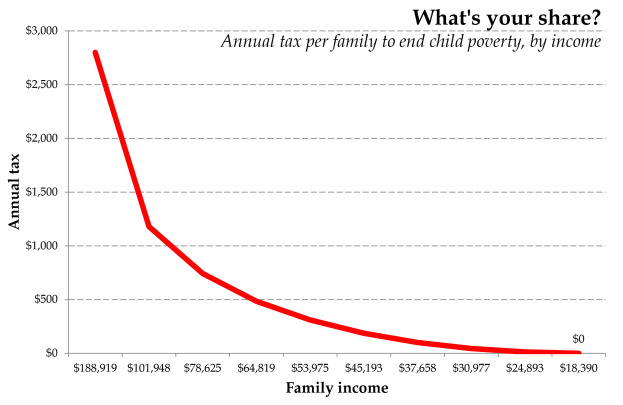At Family Inequality, sociologist Phil Cohen argues that it would be relatively easy for Americans to raise the funds to end child poverty. All it would take is an average of $578 per non-poor family per year. Taxed on a sliding scale, the rich would pay more and the middle and working class less. This is what the tax would look like (more rich on the left, less rich on the right):

Thinking that ending poverty for children is “hard” is part of the problem, he argues.
Americans tend to think of poverty as a giant, intractable problem, combining intergenerational dynamics, complex policy tradeoffs, conflicting cultural values, and “personal responsibility” (not to mention genetics).
Ideas like these are a resource for conservatives who don’t want to help poor families or don’t want to help badly enough to let it come out of their pockets. They can argue complexity and shrug. But Cohen wants us to recognize that it would be easy.
And, if it’s so easy, then the persistence of child poverty means that we just don’t want to do it.
He concludes:
Some people say the Pope should stick to religious matters, and not speak about politics. Some people also say a social scientist should stick to scientific analysis, and not make moral demands. You can ignore my moralizing, as long as you understand the fact that child poverty is a choice we make with our policies. Eliminating child poverty does not require restructuring American families, mass contraception campaigns, or a new ethos of shame. It just costs a little money.

This story originally appeared on Sociological Images, a Pacific Standard partner site, as “$578/yr to End Child Poverty. What’s the Hold Up?”



